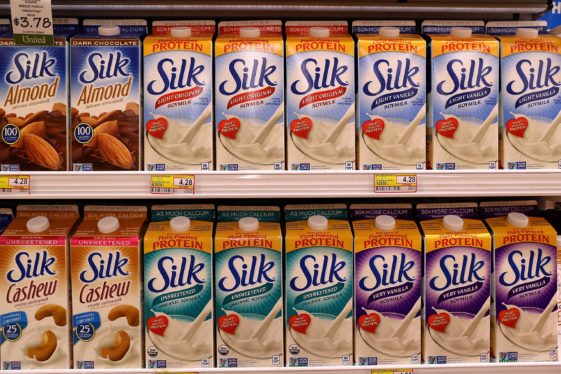
Enlarge / Containers of plant-based milk. (credit: Getty | Justin Sullivan)
Back in the simpler times of 2018—before the US Food and Drug Administration had to grapple with emergency authorizations in a deadly pandemic, before it scrambled to address a scandalous baby formula shortage, and before it largely bungled oversight of vaping products—the regulator dove into a sour struggle over dairy labeling.
At the time, the dairy industry was curdling as it watched the cold aisles of grocery stores fill with plant-based imposters—soy “milk” and almond “milk,” rice and coconut “milks.” In 2010, a fifth of US households were buying such non-moo juices. But by 2016, it was up to a third of households, with the defrauding dairy products slurping up $1.5 billion in annual sales. (And the trend went on; in 2020, sales hit $2.4 billion.)
With the issue simmering in 2018, the FDA stepped in to extract some truths and skim the fat. In a particularly clarifying statement, then-FDA Commissioner Scott Gottlieb noted that the FDA, in fact, has a definition for the “standard of identity” of milk—and it appears to exclude liquids squeezed from plants.
Read 15 remaining paragraphs | Comments





